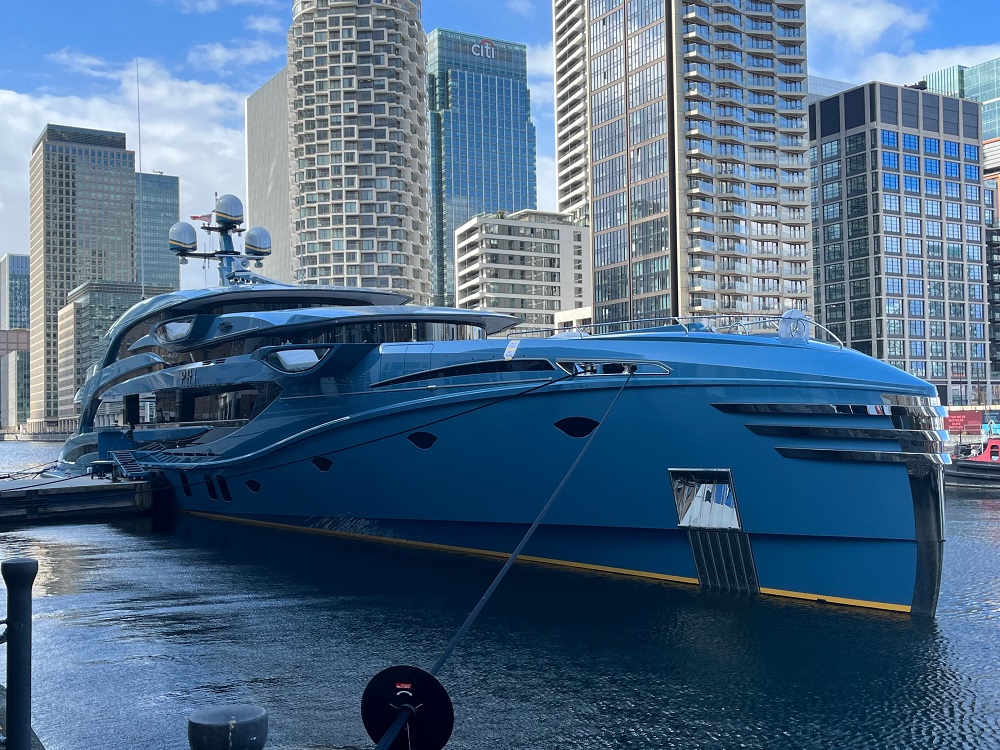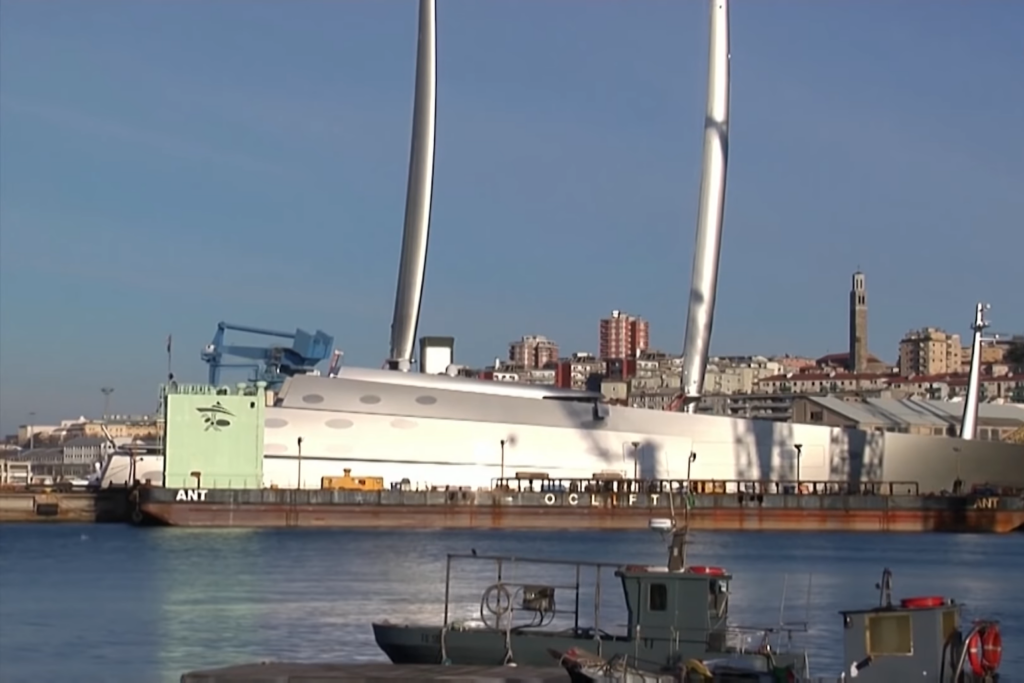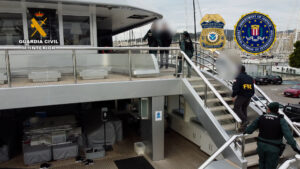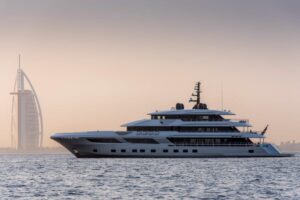Should seized Russian yachts be decommissioned?

Seized maritime assets could pose a ‘significant risk’ to ports, harbours and marinas if there is no requirement to ensure superyachts detained under sanction rules are properly maintained, made safe or deactivated, says a leading marine surveyor.
Van Ameyde McAuslands, a global firm of marine surveyors and engineering consultants, has voiced its concerns, following the seizure by port authorities across Europe of a number of high-profile megayachts thought to be owned by Russian oligarchs.
“When a vessel is seized it may no longer be in Class and ‘under flag’, and any insurance, including P&I and H&M, is likely to have already been revoked,” says Albert Weatherill, managing director, Van Ameyde McAuslands, UK.
“From that moment the yacht, by default, becomes a liability of the state. And without insurance, proper loss prevention measures need to be in place to avoid losses and claims. Potential litigation could run into millions of dollars if assets are not properly made safe or shut down correctly. These are not vessels that can be simply turned off and walked away from.”
In London’s Canary Wharf, authorities seized the US$38m Phi. The US$75m Axiom was seized in Gibraltar, and in Italy authorities boarded the US$540m SY A, one of the world’s largest privately owned yachts. Yachts thought to be worth more than US$16 billion are being held across Europe, in Finland, France, Norway, Spain, and Germany.

Flag state requirements usually call for minimum manning and planned maintenance. But according to the surveying firm, there is confusion over who will be responsible for carrying out routine maintenance if any is being carried out at all.
“If crews are not being paid and walk away or if sanctions prohibit maintenance, what happens if there’s a pollution incident? What happens if the vessel comes adrift or catches fire, if there’s theft or the vessel is sabotaged? There are too many unknowns, and in this industry, unknowns often equate to litigation,” continues Weatherill.
Van Ameyde McAuslands believes that seizing authorities – flag states – should be aware of the need to take immediate action when a vessel is impounded. It is thought that none of the seized yachts to date have been prepared for lay up or surveyed to prevent pollution or disruption to the port.
While it is difficult to predict how long the vessels are going to remain alongside, to make them safe machinery should be deactivated, systems drained down, discharge overboard valves closed, fire systems checked and engines prepared for cold lay-up in accordance with classification society and OEM guidelines.
“This will prevent any potential damage to machinery, internal cabins, valuables, limiting financial exposure and liability. It will also safeguard against any potential risk to the maritime infrastructure, the environment and the public at large,” adds Weatherill.
“Manning, deterioration, damage, fire, theft, danger to people and property – these are all very serious issues. When vessels are dormant for long periods there is potential for things to go wrong and when there is no insurance safety net to fall back on, it’s a big problem. We’re in unchartered territory.”











get the chief engineer to shut most of it down, it’s his job!
Employ the chief engineer to stay on the vessel to keep it safe. Bill all caretaking costs to the vessel, to be settled at the end of sanctions. This can include temporary insurance.
Serve notice that the vessel will be sold at auction if costs are not covered at end of sanctions.
Article reads like “lawyers looking for a fight”.
Apart from the security and pollution risks of sanctioned yachts, spare a thought for the boatyards where they are held. As long as they are sanctioned, not only are the yachts contributing nothing to the turnover of the yard , they are occupying valuable work spaces which prevents unsanctioned yachts being brought in to keep the yard fully active.
When the crisis is eventually resolved I cannot see any Russian oligarch offering to pay a parking fee for the time he was prevented from accessing his yacht.
These vessels can be laid up and made safe for durations of months or even years. Of course, that’s a short-term solution for many of the reasons stated, but the right consultancy can do it.
Let’s take a perspective that considers for what humanitarian effort(s) these vessels can be used. Using existing industry auditing and survey tools, we can determine alternative applications that can support ongoing humanitarian response efforts.
Much like cruise ships have been repurposed during war times as transports and hospitals, these assets can be focused on supporting response efforts.
www.revolutionces.com